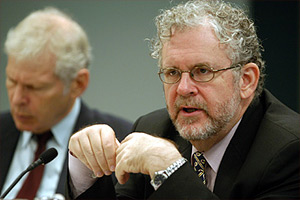
By Richard Norman
A new book, God and Glory: Britain, America, and the Making of the Modern World, by Walter Russell Mead was discussed a couple of weeks ago by the author at the Council on Foreign Relations (video here). A summary quote:
I want to say quickly that in the book I don’t argue that Britain or America triumphed because they were purely laissez faire. In fact, what I’ve said is that they have an ability to have incredible intense competition but also rules and clear regulators. They’ve managed to mix it. It’s very interesting: almost every sport that’s played today around the world is played under rules developed in either Britain or the U.S. in the nineteenth century. And the idea in developing rules–whether it’s the Marquis of Queensberry rules in boxing or the tennis rules or soccer–is that they wanted a combination. They wanted rules, but they wanted the rules not to suppress competition but to encourage the keenest possible competition. So the idea that rules are antithetical to competition is not part of this Anglo-American genius.
A little more on the book from the CFR site:
[Mead makes it] clear that the key to the predominance of the United States and England has been the individualistic ideology of the prevailing Anglo-American religion. Mead explains how this helped create a culture uniquely adapted to capitalism, a system under which both countries thrived. We see how, as a result, the two nations were able to create the liberal, democratic system whose economic and social influence continues to grow around the world. The stakes today are higher than ever; technological progress makes new and terrible weapons easier for rogue states and terror groups to develop and deploy. Where some see an end to history and others a clash of civilizations, Mead sees the current conflicts in the Middle East as the latest challenge to the liberal, capitalist, and democratic world system that the Anglo-Americans are trying to build. What we need now, he says, is a diplomacy of civlizations based on a deeper understanding of the recurring conflicts between the liberal world system and its foes. In practice, this means that Americans generally, and especially the increasingly influential evangelical community, must develop a better sense of America’s place in the world.
Above photo: Mead -Richard

[Mead makes it] clear that the key to the predominance of the United States and England has been the individualistic ideology of the prevailing Anglo-American religion.
Let’s not forget that it was the Dutch who “invented” much of what we think of as modern capitalism, and that this was “borrowed” by the English in the 16th and 17th century. Also, by Anglo-American religion, I wonder whether he is referring to Protestantism and Weber’s thesis?
And while keeping with the sports analogies, let’s not forget another important ingredient in American/British supremacy – their unfailing ability to kick the ass of their enemies, repeatedly over the ages, whether they be Indians (both kinds), black slaves, Argentines, other colonial empires, etc.
If you ever see the British version of Maxim, they have made several references to that country’s undefeated war record. And many Americans will not admit that they have lost any wars either (Vietnam or 1812 were at leat “ties”).
I don’t think it was liberal democracy or “invidualism” that helped them do that, though I’m sure industrial capitalism played an important part.
I do believe that the sports analogy has also been carried over to the military sphere. From Wikipedia: The Duke of Wellington is often quoted as saying that “The Battle of Waterloo was won on the playing-fields of Eton”, but this has been challenged. Wellington briefly attended Eton – for which he had no great love – in the late 18th century, when the school had no playing fields and no organised team sports, and the statement was first recorded three years after his death.